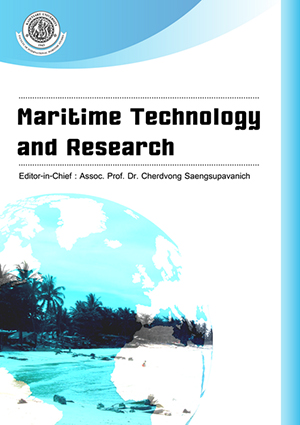ThaiScience
ThaiScience
MARITIME TECHNOLOGY AND RESEARCH
Volume 4, No. 02, Month APRIL, Year 2022, Pages 253 - 937
Dominant constraints to the effective use of oily-water separator (ows) in the control of ship-based oil pollution in west african waters
Theophilus Chinonyerem Nwokedi, Donatus Eberechukwu Onwuegbuchunam, Ejem Agwu Ejem, Theophilus Cyril Toochukwu
Abstract Download PDF
The International Regulations for the Prevention of Marine Pollution from ships (MARPOL 73/78) provided for the deployment of the oily-water separator (OWS) technology for the prevention of ship-based oily-water pollution in the marine ecosystem. Previous studies on the efficiency and effectiveness of the use of the OWS technology shows about 40 % failure rates and ineffective use; while also identifying a multiplicity of correlated factors constraining the effectiveness of the use of the technology onboard. To overcome the constraints posed by the identified factors to the effective use of the OWS technology requires a systems approach, which demands the determination of the dominant and significant factors constraining most, the effective use of the technology and prioritizing the elimination of the significant factors. The study used a survey design approach, employing primary data and the principal component factor analysis to determine the existence of about five principal factors, significantly constraining the effective use of the technology by ship operators in the West African Waters. The policy implications were discussed and recommendations for effective use of the technology proffered.
Keywords
Dominant factors, Effective use, Oily water, Separator, Technology, PollutionMARITIME TECHNOLOGY AND RESEARCH
Published by : Faculty of International Maritime Studies, Kasetsart University
Contributions welcome at : https://www.tci-thaijo.org/index.php/MTR
